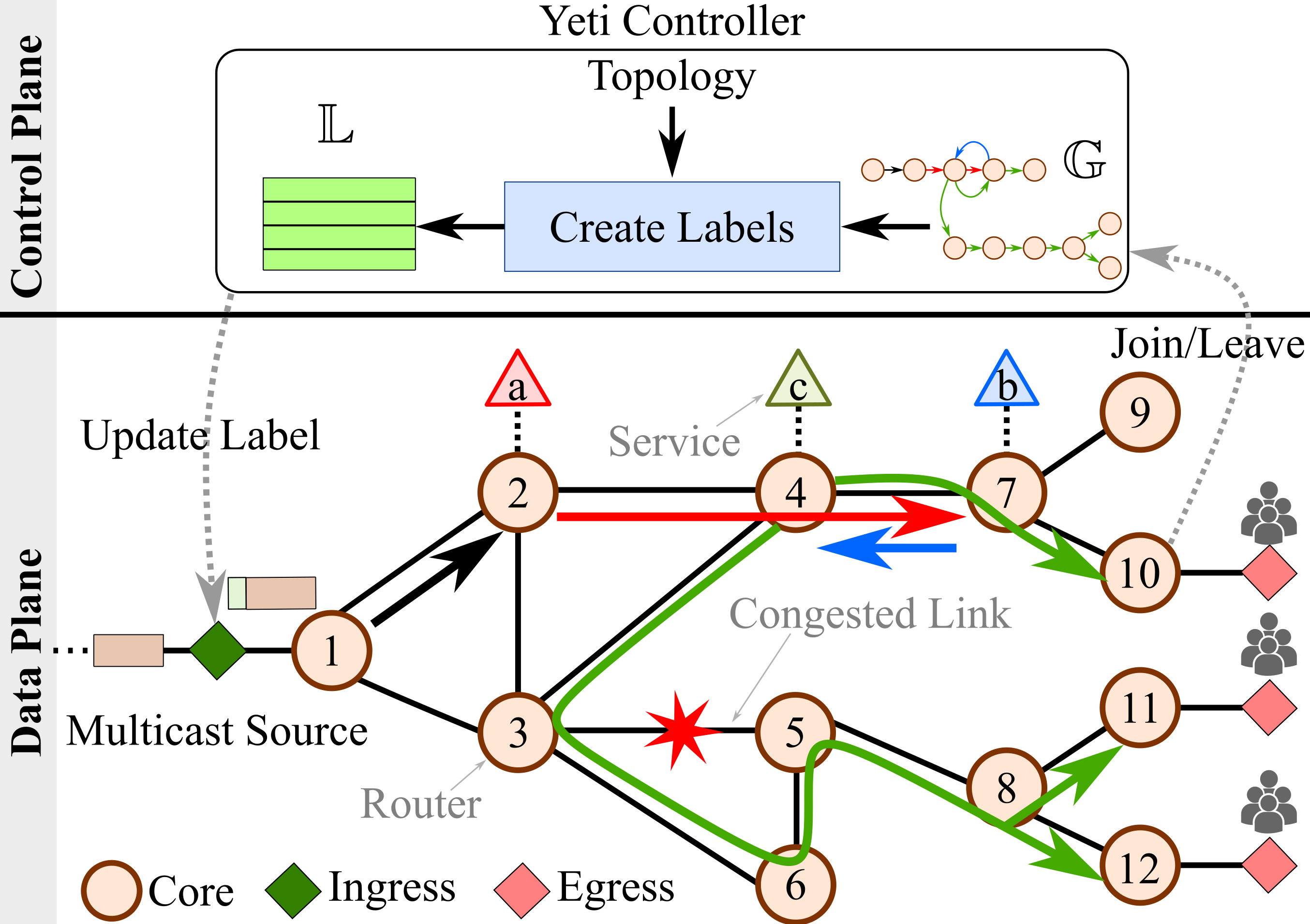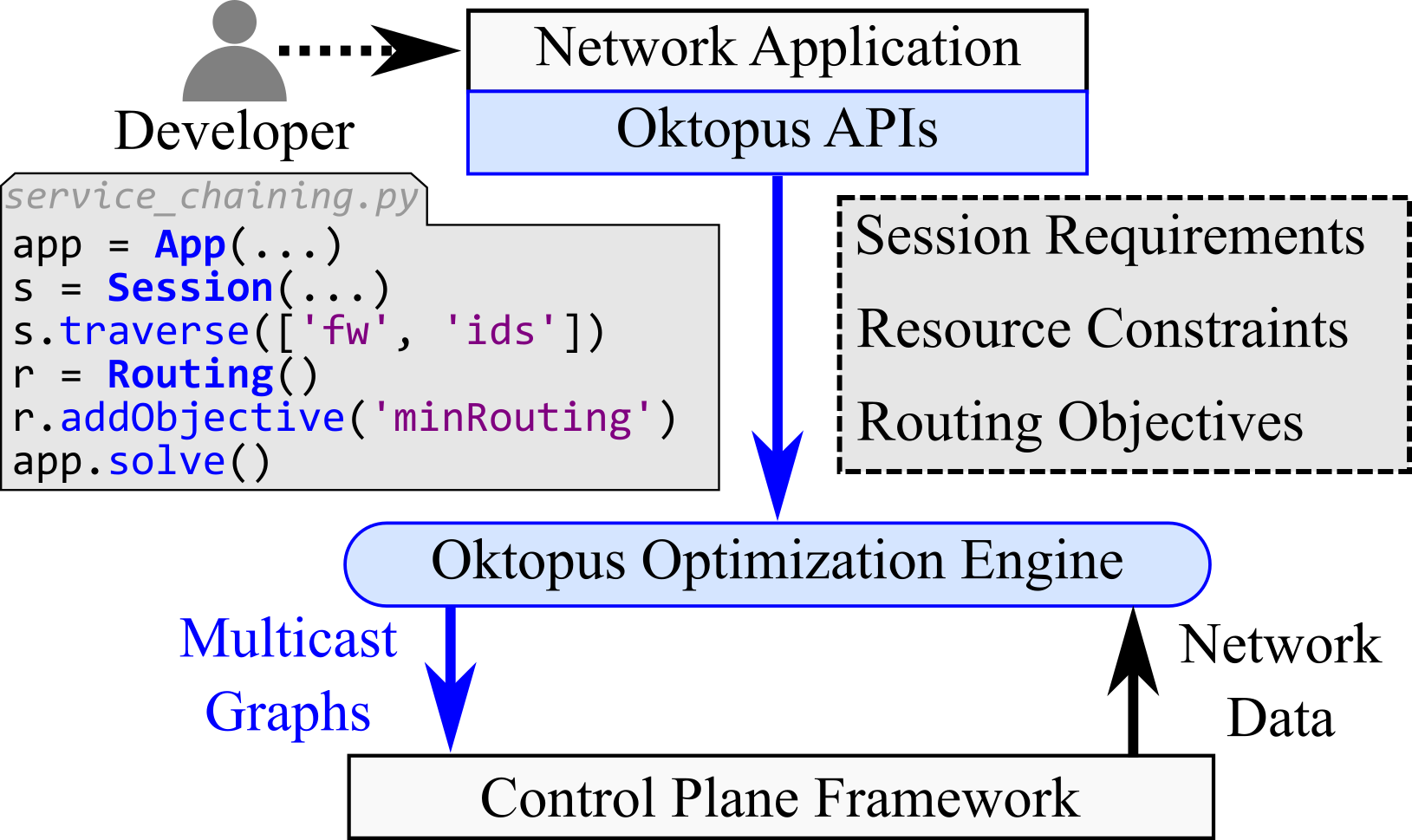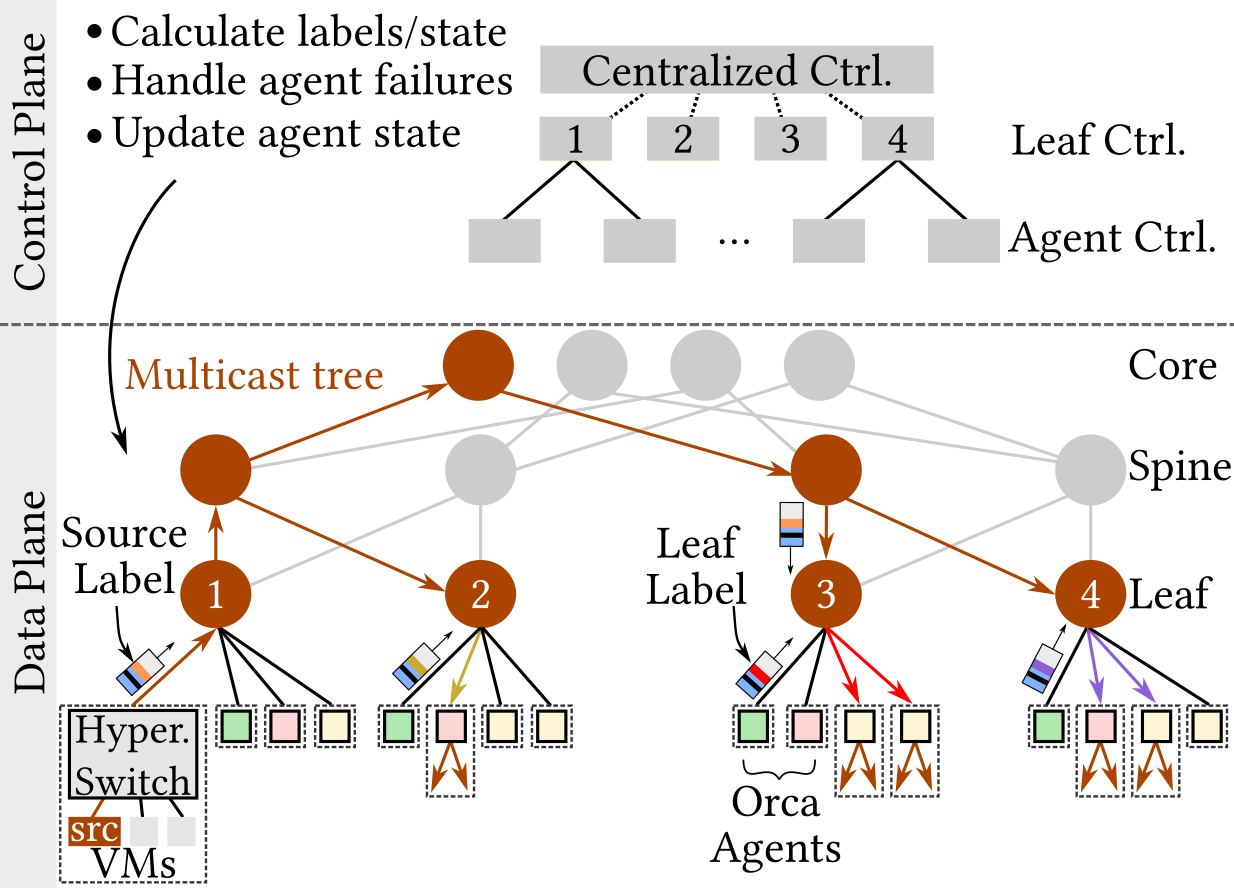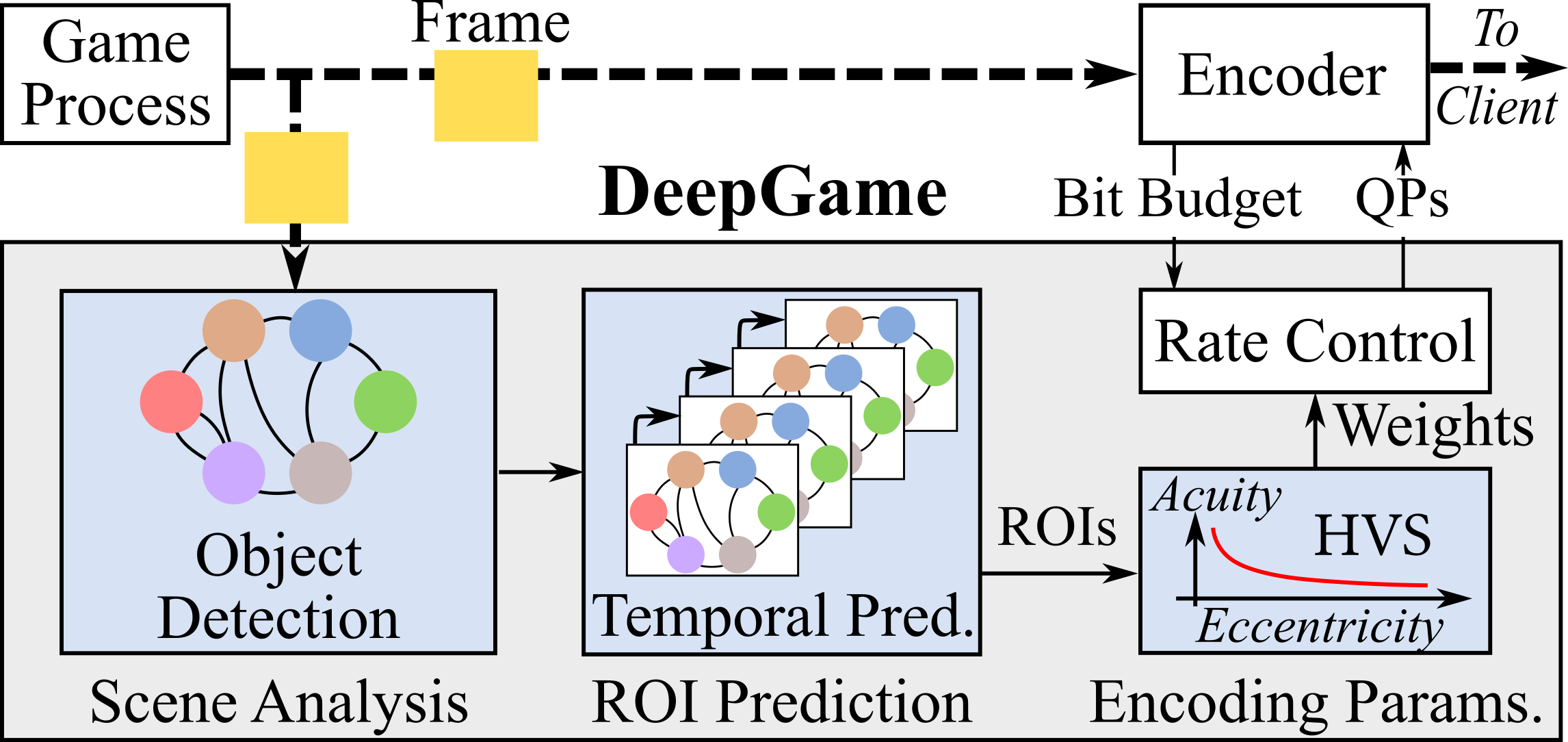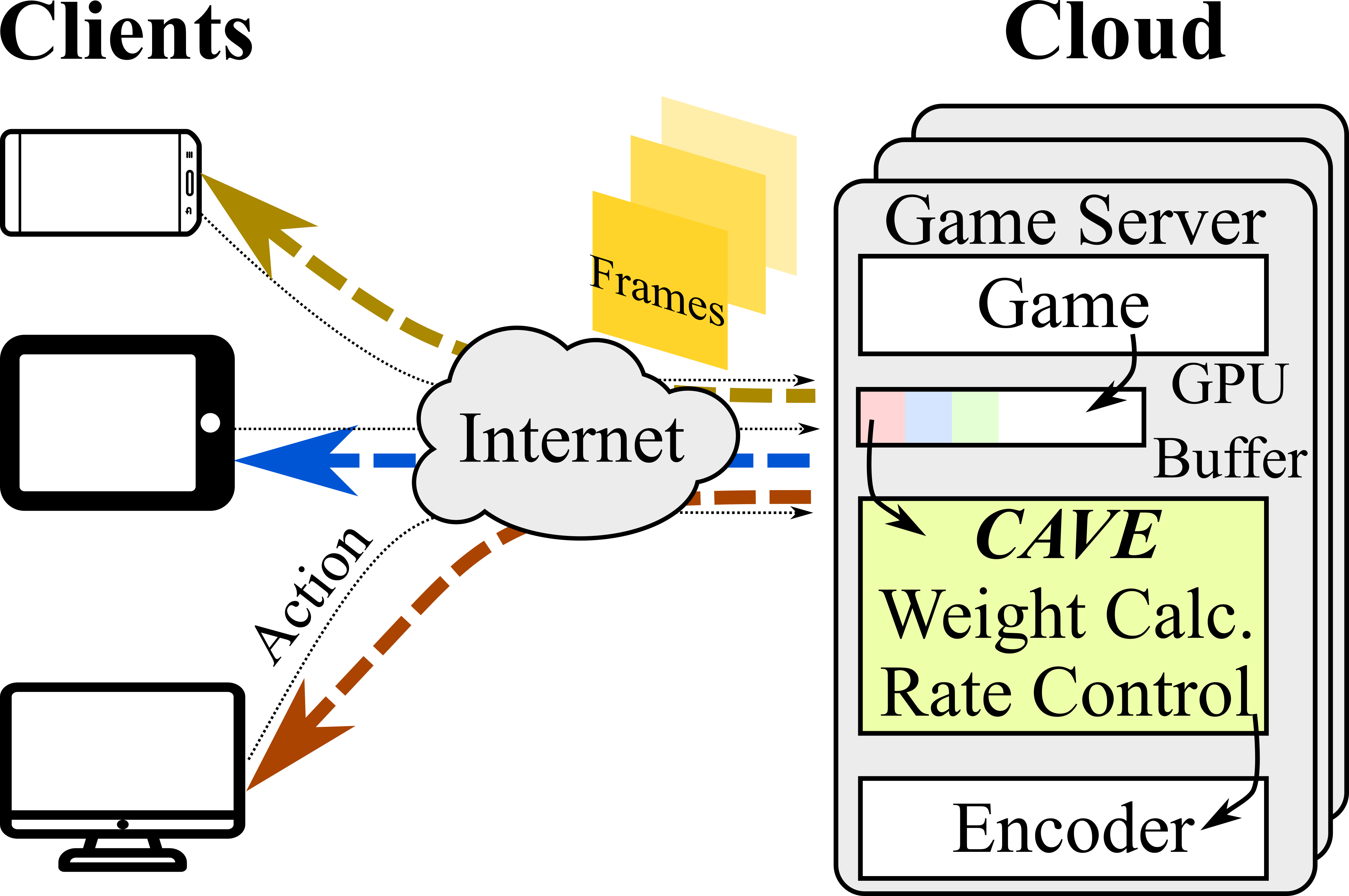Research
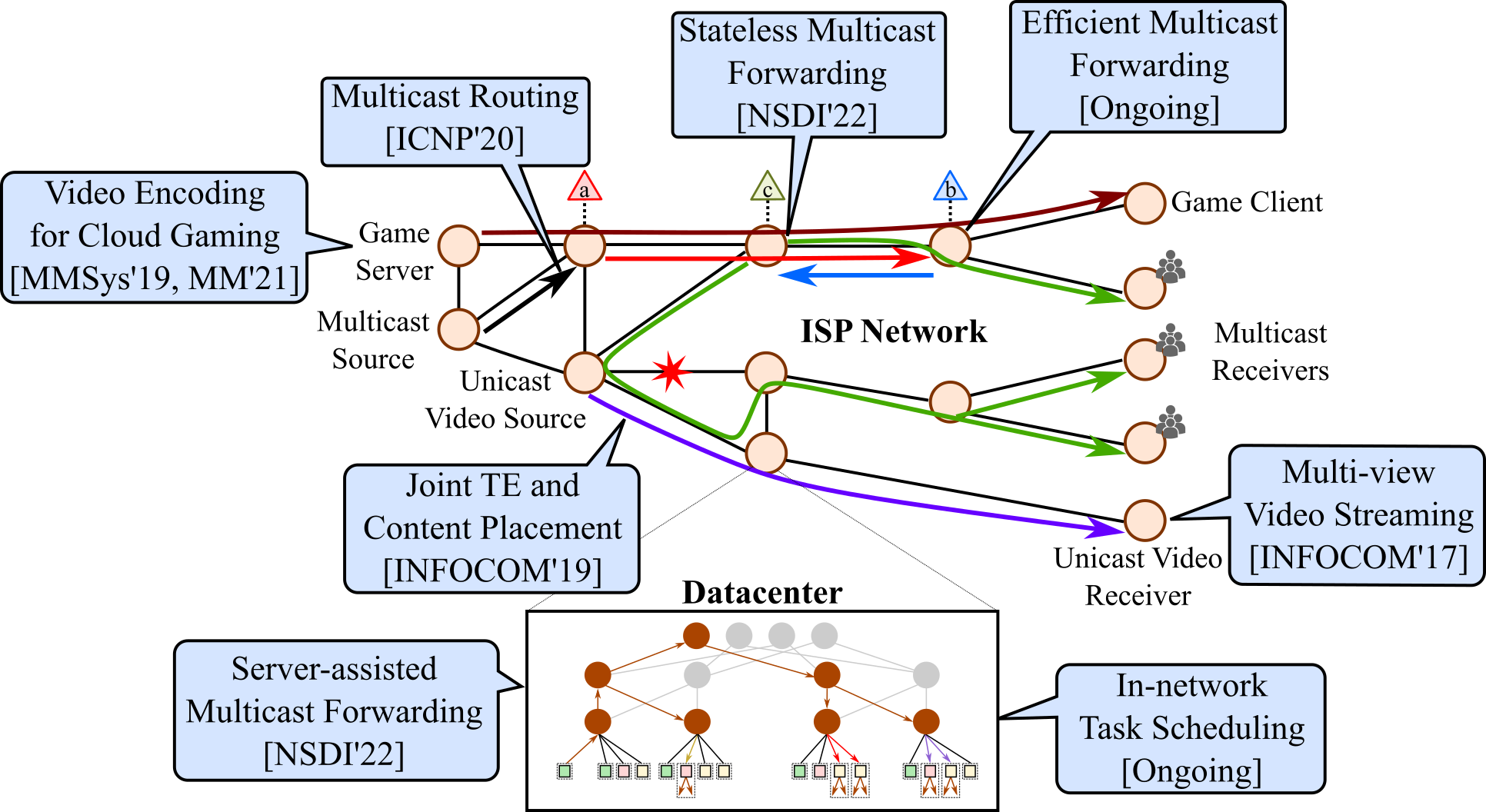
Multicast Forwarding and Routing
Despite its potential significant bandwidth savings, major network providers do not yet support multicast within their networks. This is because of the lack of efficient and scalable multicast primitives that (i) support various routing requirements of ISPs such as traffic engineering and service chaining, where a packet needs to pass through an ordered set of network services before reaching the receivers, and (ii) forward packets of large numbers of concurrent multicast sessions. My main contribution is addressing the scalability challenges by managing, reducing or eliminating the required state to be maintained at network switches.
Data Center Networking
The current focus of my research in this area is to design various networking primitives to efficiently manage the network resources. The main idea is to take advantage of network programmability to manage the network. Specifically, I have been designing systems that efficiently forward multicast traffic, and accurately schedule tasks within the network.
Multimedia Systems
Streaming videos over the Internet is a multi-billion-dollar industry and it is rapidly growing. This is due to the proliferation of new types of multimedia content such as 4K videos and immersive content such as multiview and 360-degree videos. These new multimedia contents are becoming popular because they offer high-quality and unprecedented experiences to users. For example, multiview videos allow users to explore scenes from different angles and perspectives, whereas 360-degree videos put users in virtual scenes that can be navigated. As the popularity of immersive videos increases, the amount of multimedia traffic distributed over the Internet increases at high rates. Thus, major ISPs need to efficiently carry and manage larger volumes of multimedia traffic through their networks. My recent work focused on two aspects of multimedia systems: (i) the adaptive streaming of multiview videos, and (ii) the traffic engineering and content placement of multimedia content.
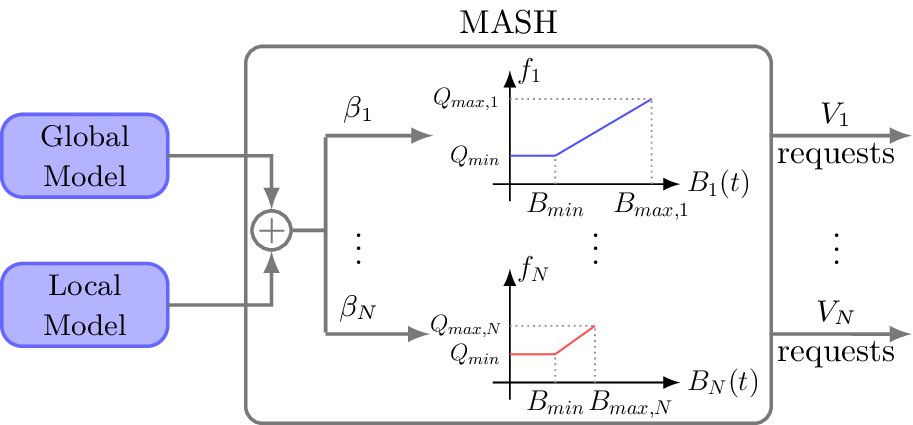
MASH [INFOCOM'17]
A Rate Adaptation Algorithm for Multiview Video Streaming over HTTP
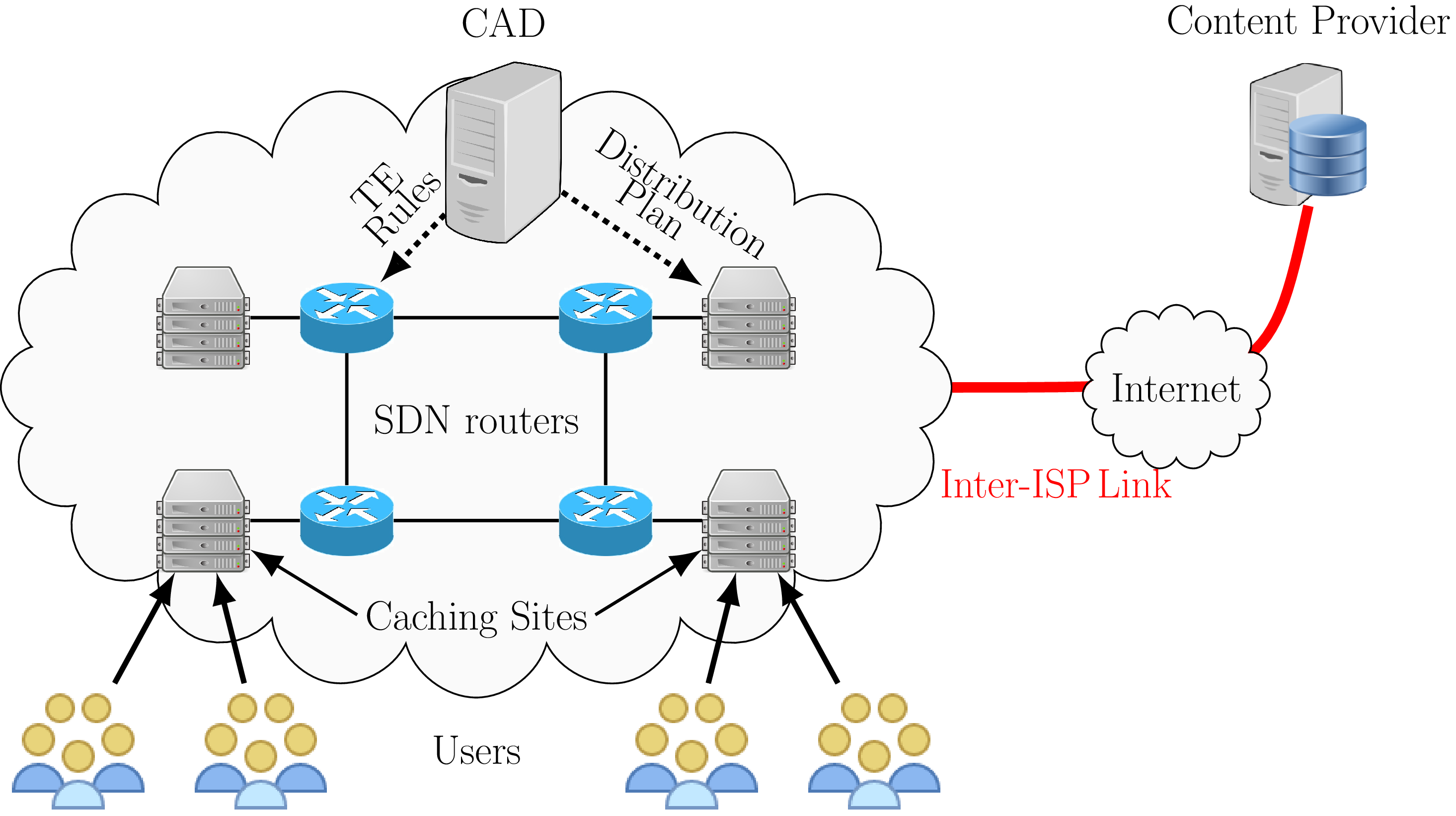
CAD [INFOCOM'19]
Joint Content Distribution and TE of Adaptive Videos in Telco-CDNs
3D Video Streaming [MM'14, TOMM'16, MMSys'14]
We developed systems to manage the large storage requirements of 3D videos, and stream 3D content with depth personalization and customization.
Cloud Gaming
Cloud gaming offloads the main components of games from clients/consoles to cloud servers. This leads to several advantages such as facilitating new game updates, avoiding potential piracy, and reducing the computation and storage resources at the clients. The cloud server executes the game logic, renders the game, and encodes and transmits the frames to end users. This introduces fundamental tradeoffs between latency, bandwidth consumption, and perceived quality. The focus of my work is to reduce the bandwidth usage of cloud gaming while achieving a high perceived quality. The main idea of our research is to create computational models to understand how players interact with various game genres, and encode various regions in the frame proportional to their importance to the player.
